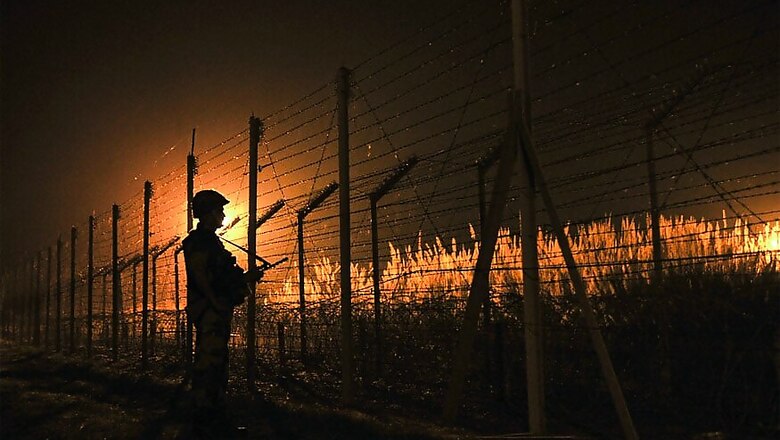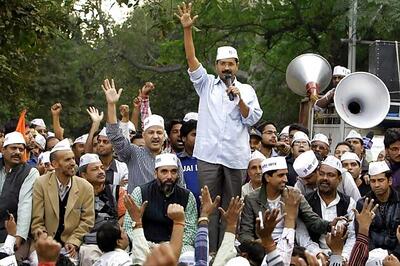
views
New Delhi: In what may be described as the first Confidence Building Mechanism (CBM) between India and Pakistan off late, the armies of the two countries have decided to restore the 2003 ceasefire agreement at the border.
According to officials, a hotline was established between the Director Generals of Military Operations (DGsMO) of India and Pakistan and both agreed to stop violating the ceasefire.
Ministry of Defence (MoD) officials said that routine talks were first held between senior military officers of the two countries on May 22, following which the DGMO talks were held on Tuesday. MoD officials added that the talks were held at the behest of Pakistan.
“The existing Hotline mechanism was initiated by Pakistan’s DGMO at 1800 hours (IST). Both the DGsMO reviewed the prevailing situation along the Line of Control and IB in J&K. Indian Army DGMO agreed with the proposal to undertake sincere measures to improve the existing situation to ensure peace and avoidance of hardships to the civilians along the borders.”
The Inter-Services Public Relations (ISPR), publicity wing of the Pakistani military, in its statement on the issue said: "Both DGMOs reviewed the prevailing situation along the Line of Control and working boundary and mutually agreed to undertake sincere measures to improve the existing situation ensuring peace and avoidance of hardships to the civilians along the borders.”
“The officials also agreed to fully implement the ceasefire understanding of 2003 in letter and spirit and to ensure that the ceasefire agreement will not be violated by both sides from now on," it added.
The 2003 ceasefire agreement was a result of high-level diplomatic dialogue between the two countries to establish peace following the December 13, 2001 Parliament attacks.
Sources in the Ministry of Defence said that the idea to restore the 2003 agreement along the Indo-Pak border had been in the works for some time. "Ceasefire had already been dead. There was no ceasefire along the LoC for quite some time now. So there were some talks to ease pressure on civilians, on either side of the border, and stop the constant shelling," said a top retired army officer, who was privy to the consultation on the issue.
Last couple of years have seen an unprecedented spike in the number of ceasefire violations which had made the current situation untenable. In 2010, the official number of ceasefire violations by India were 70 and those by Pakistan were 113.
Since then there was a constant escalation in the number of ceasefires which reached a crescendo in 2017, the year after Kashmir saw a huge turmoil with the death of Hizbul Mujahideen commander Burhan Wani. That year there were 971 ceasefire violations by India, as reported by Pakistani army, and 1970 ceasefire violations by the Pakistani Rangers and its army.
This year alone, in the first five months, there have already been 1050 ceasefire violations by Pakistan, and 633 ceasefire violations by the Indian army. Thousands of civilians on either side of the border have had to flee their homes, schools and offices, repeatedly since the beginning of the year. Towns after towns and villages are lying empty in several border districts in India.
Just a week ago, nearly 80,000 civilians fled over a hundred villages in Araria, Samba and RS Pura districts of J&K due to constant shelling by Pakistani troops. Villagers quoted by several media outlets say that they had never seen this level of shelling near border areas since the 1971 war.
At least 18 security personnel and 25 civilians have lost their lives in shelling in areas adjoining the border. So severe is the situation that the local administration had to expedite the construction of community bunkers in border towns. There are 43 community bunkers in various districts of Jammu at present. Each bunker can accommodate up to 30 people.
Though there has been a rise in shelling across the border, but signs of a thaw in relations between the two countries have become visible.
In an interview to the Indian Express, the Indian High Commissioner to Islamabad Ajay Bisaria, had said India and Pakistan had been working "in recent months on small steps forward, particularly on the humanitarian side, to build an atmosphere of trust between the countries."
One of these steps, Bisaria said, was a proposed exchange of all prisoners, "particularly those in the vulnerable category (women, seniors and the mentally challenged). We have had some traction this year, including on agreements to exchange medical delegations and resuming the institutional mechanism of the Joint Judicial Committee, which will inspect jails and accelerate the process of repatriation of prisoners.”
Apart from this, the Indian High Commissioner said, there were other "signs of positivity". One of them, in an attempt to reduce tension in the valley, has been the suspension of military operations in Kashmir, which has come popularly to be known as the "Ramzan Ceasefire".
Following this India also sent its team to a three day Shanghai Cooperation Organisation (SCO) anti-terror conference in Islamabad earlier this month.
The first comprehensive signs of the thaw may have come last month, from the chief of Pakistan's "deep state" itself. It was in April, when the Pakistani army chief General Qamar Bajwa, in a passing out parade of Pakistani army cadets had said that "peaceful resolution of India-Pakistan disputes, including the core issue of Kashmir, can be found through a comprehensive and meaningful dialogue."
When defence minister Nirmala Sitharaman was asked to respond to this, she said, "Any call for peace from Pakistan will be taken seriously by India." Home minister Rajnath Singh, had also, in a recent interview said, “If Pakistan is ready to talk, why won’t we talk? We want to have good relations with our neighbour."




















Comments
0 comment